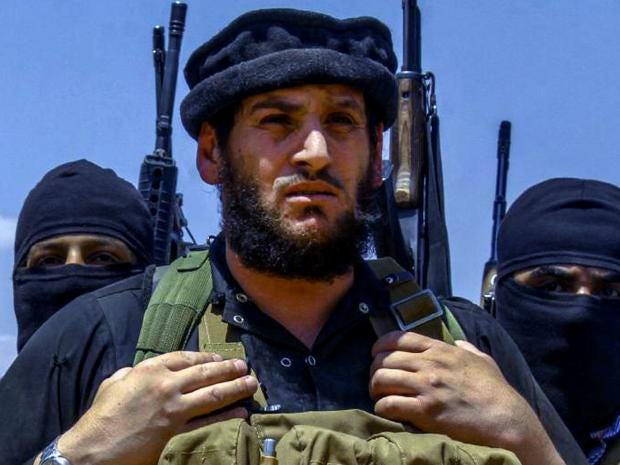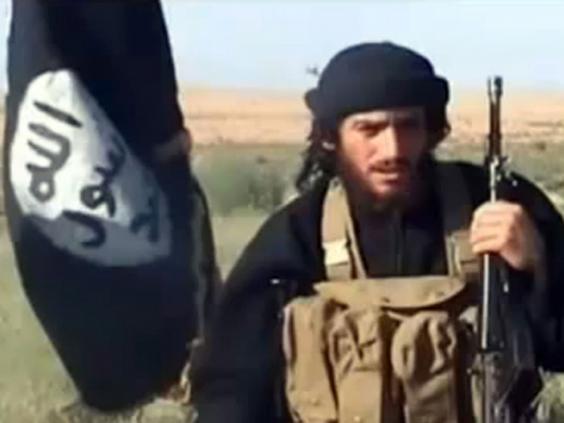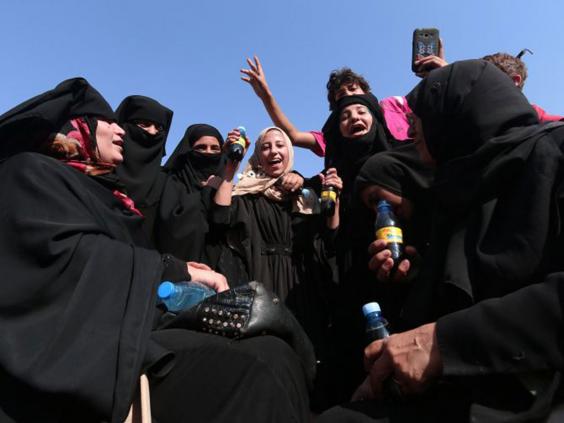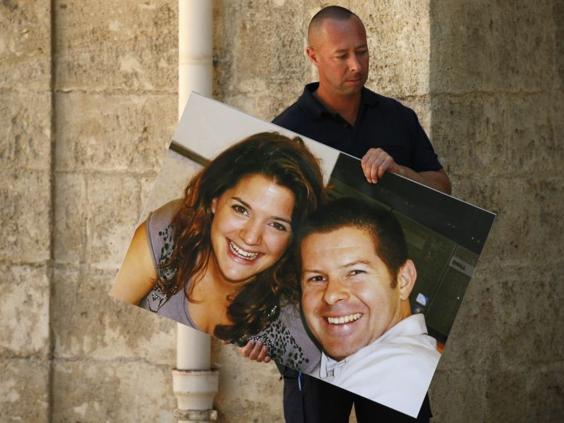
Isis have been dealt a “major blow” by the death of senior leader Abu Muhammad Al-Adnani as it continues scrambling to defend territory across Syria and Iraq, experts have said.
The terrorist group’s second-in-command was killed in an air strike in the Syrian province of Aleppo in a significant victory claimed by both the US and Russia, indicating a formidable level of intelligence on jihadists’ movements.
Adnani headed the so-called Islamic State’s feared “Emni” security service and its propaganda wing, becoming known for speeches calling on supporters to carry out terror attacks around the world.
His messages were directly cited by several attackers who carried out atrocities in Europe and his influence on massacres and foreign fighters drew a $5 million (£4 million) bounty from the US.
Adam Deen, a senior researcher at the Quilliam Foundation, told The Independent Isis would be “scrambling to find a replacement”.
“His death is a major blow,” he added. “Isis is dependent on personality cults and celebratisation of key leaders.
“This is something hard to replace and Adnani was something of a household name.
“When Mohammed Emwazi [the British executioner known as Jihadi John] was killed, Isis never found a replacement with the same celebrity impact. They still haven't – hammering key influence figures is therefore vital.”
Emwazi, who became notorious after appearing in a series of gory propaganda videos showing the deaths of foreign hostages, was killed in an American drone strike on Raqqa last year.
The US air campaign has continued targeting high-profile members of the terrorist group, recently killing Chechen commander Abu Omar al-Shishani.
In its own propaganda statement announcing Adnani’s death, Isis appeared to acknowledge the impact, asking “Allah to alleviate this hardship for us”.
The group’s eulogy said Adnani was targeted while surveying military operations in Aleppo province, where its fighters hold frontlines against opposition groups, the Syrian army and the US-backed Syrian Democratic Forces.
It ended with a threat directed at the “filthy cowards from the religion of disbelief and the carriers of the cross” of more attacks.
“A generation has been born in the Islamic State that has been raised upon might and defiance and that will not accept humiliation,” the statement said. “They love death more than your love of life…the blood of their leaders will only increase the steadfastness upon the path of jihad and increase their resolve to exact revenge against their enemies.”
The statement appeared to refer to thousands of children born under Isis rule in Iraq and Syria, who are brainwashed from a young age and sent to military training camps.
Europe’s law enforcement agency Europol previously warned the boys could become the “next generation” of Isis terrorists, either continuing insurgencies in the Middle East or being deployed abroad.
Mr Deen said Adnani’s death could trigger new attacks in Europe as Isis continues to operate sleeper cells and sent back trained foreign recruits, despite the weakening of its military capability by a series of significant territorial losses.
Jane Kinninmont, the deputy head of the Middle East and North Africa Programme at Chatham House, warned it would be “wishful thinking” to believe Isis will be significantly undermined.
Arguing the death of Osama bin Laden and the founder of Isis’ predecessor group Abu Musab al-Zarqawi had “limited impact”, she told The Independent: “The death of such a senior leader is a tactical success for the U. and the anti-Isis operation, but is unlikely to significantly undermine Isis.
“Individual leaders do matter and represent an important resource for the group.
“If senior leaders were to recant, or to be exposed as compromising their public image, this might undermine their credibility, but dying in combat will be seen by Isis followers as ‘martyrdom’.”
Ms Kinninmont said the group’s ability to operate and recruit member will be more influenced by military operations seeing swathes of its territory recaptured in Syria and Iraq, where a major operation is being mounted to drive Isis out of Mosul.
Peter Cook, the Pentagon press secretary, said Adnani was killed in a coalition air strike on a car near the Isis stronghold of al-Bab, which lies between Aleppo and Manbij.
“We are still assessing the results of the strike, but al-Adnani's removal from the battlefield would mark another significant blow to Isil [Isis],” he said on Tuesday.
“Al-Adnani has served as principal architect of Isil's external operations and as Isil's chief spokesman.
“He has coordinated the movement of Isil fighters, directly encouraged lone-wolf attacks on civilians and members of the military and actively recruited new Isil members.
“The US military will continue to prioritize and relentlessly target Isil leaders and external plotters in order to defend our homeland, our allies and our partners.”
Russia's defence ministry later claimed it was responsible for the deadly strike, claiming Adnani was targeted as part of its campaign supporting Syrian President Bashar al-Assad.
A spoksperson claimed he was killed alongside around 40 other Isis militants in Maaratat-Umm Khaush, Aleppo province.
American officials said Adnani’s real name was Taha Subhi Falaha, identifying a Syrian man believed to be aged in his late 30s.
Born in the town of Banash in 1977, he was listed as a Specially Designated Global Terrorist and sanctioned by the United Nations Security Council.
Adnani had been prolific in the jihadist movement for more than a decade, fighting the US invasion of Fallujah in Iraq in 2004 and becoming a prominent figure in local al-Qaeda-affiliated terrorist groups that would later turn into Isis.
In June 2014, he formally announced the establishment of Isis’ self-declared “caliphate” under the leadership of Abu Bakr al-Baghdadi, demanding allegiance from Muslims worldwide and calling for them to travel to the group’s territories.
Adnani later featured in audio recordings and videos calling for lone wolf attacks in the West in revenge for air strikes against Isis.
His latest announcement, released in May, called for atrocities in the Muslim holy month of Ramadan and was linked to the Orlando shooting and Nice attack among others.
Larossi Abballa, a jihadist who murdered a French police officer and his wife outside Paris in June, name-checked Adnani in a Facebook post swearing allegiance to Isis.
“I have responded to the call of Sheikh Abu Muhammad al-Adnani,” he said, referring to the Isis spokesman’s speech.
But Adnani’s role was not confined to radicalisation – he was also the head of Isis’ multi-level secret service planning attacks around the world.
Harry Sarfo, a former Isis fighter interviewed by The Independent, described him as “the big man behind everything”, adding: “Everything goes back to him.”
Adnani’s death came as the terrorist group faces unprecedented military pressure, with Turkish-backed rebels joining the assault on its territory in Syria and Iraqi forces mounting a key assault on its de-facto Iraqi capital of Mosul.










